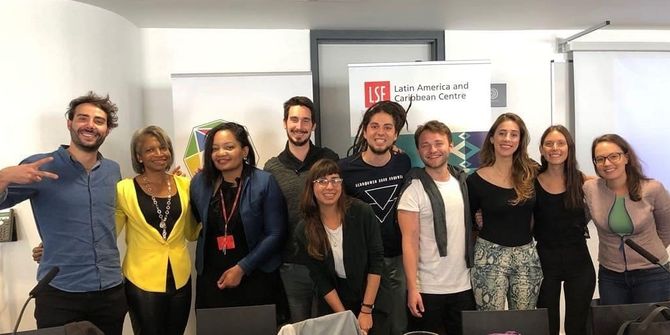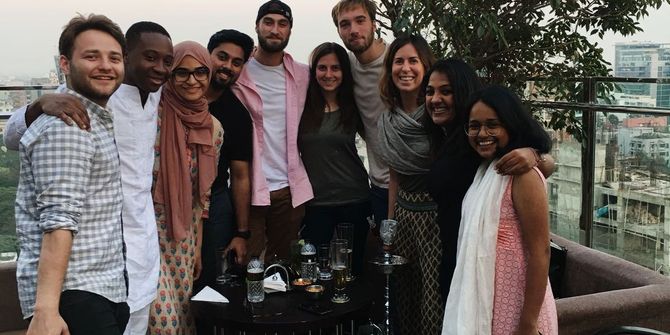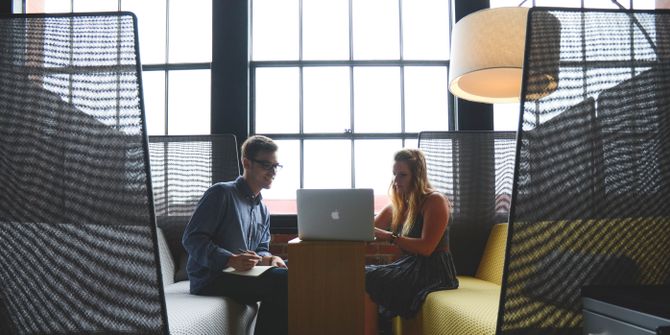Entrepreneurship isn’t just about business. It’s a lifestyle, with its own mindset and challenges, and by listening to them we can learn a great deal. Fanny Vingerhoets helped to organise the latest Social Entrepreneurship 360 event, bringing an inspiring group of thinkers, makers and doers to campus.
By developing creative solutions, entrepreneurs can transform our world. While not everyone will become an entrepreneur, hearing their stories first hand is an amazing opportunity to gain knowledge and inspiration.
Last week LSE Innovation Co-Creation Lab, Santander Bank and LSE’s Latin American and Caribbean Centre hosted the Social Entrepreneurship 360 event, where amazing ideas were discussed. This event was particularly meaningful for me because students from the MSc Social Innovation and Entrepreneurship programme were responsible of inviting entrepreneurs and organisations from around the world.
On this occasion the panel of world-class social entrepreneurs was formed by:
- Alina Truhina, Director, Partnerships and Growth of A2B Labs, who has major experience in international organizations such as the World Bank. She focused on developing partnerships for solving challenges in emerging economies by implementing innovative and transformational ideas.
- Maureen Salmon, consultant, coach and academic, founder of Freshwaters Consulting. She supports innovative ideas, perspectives and approaches to aid individuals and organisations create sustainable futures.
- José Tomás Lobo, City Director of Laboratoria, who empower women from low socioeconomic levels through software education.
- Agustín Batto and Lucia Burtnik, Founder and Director of Innovation from Eidos.
They propose innovative education methods that leave traditional ‘listen and learn’ techniques in the past. They support new education methodologies for developing skills that people can use in this century
The event focused on useful advice from the founders and directors sharing inspiring stories. They offered nuggets of wisdom, recounting the strategies they applied to overcome challenges along their path.
The panellists all had backgrounds in social enterprises. They revealed their business models and their motivation of attaining a real social impact. They also explained how they managed to utilise commercial strategies to obtain sustainable funding sources.
I believe that nothing teaches you more than hearing real stories directly from their protagonists, and having the opportunity to discuss and network them. It also helps us to observe social problems and policies from different angles, as well as contemplate innovative ideas and out of the box solutions.
As a social innovation and entrepreneurship master student, I appreciated the international views brought to the room by the panellists and attendees. Questions and opinions reflecting multicultural experiences were presented, allowing for a more global way of thinking. It allowed us to observe how new ideas are formed, and the unique circumstances which allow them to grow.
Stating that the world is globalised is not an eye opener for anybody nowadays, but observing how innovative social programs can successfully be applied in one country while being a failure in another is astonishing. It makes you realise that it doesn’t matter how globalised we are, we cannot ignore the importance of understanding social problems and their solutions starting from the own cultural roots of each country, as they have the power to make even the smartest plan a failure..
As a Peruvian, for any developing any social program I take in account aspects such as the efficiency level of government entities, and the cultural values of the population concerning social activities.
But it wasn’t just a celebration of success. The panellists talked about their failures. As Bill Gates once said: ‘It’s fine to celebrate success but it is more important to heed the lessons of failure’. Nothing is more meaningful for our professional and personal future than being able to learn from our mistakes.
Some of the so called failures lessons or best called “words of advice” that resonated the most with me were:
- ‘Don’t become a success junkie’: this means that it is important to manage the success you achieved today and to keep innovating, without relying on present success to ensure future accomplishments.
- ‘If you fail, do it small and cheap’: It is important to test a new program before launching it in a large scale. Always test new concepts on a small scale, so if they don’t work it would not be so harmful for the company or public.
Finally, I want to congratulate my friends from the MSc Social Innovation and Entrepreneurship programme involved in the organisation of this event. You have really done amazing job and set the bar high for following organisers.
Learn more about our MSc Social Innovation and Entrepreneurship programme






